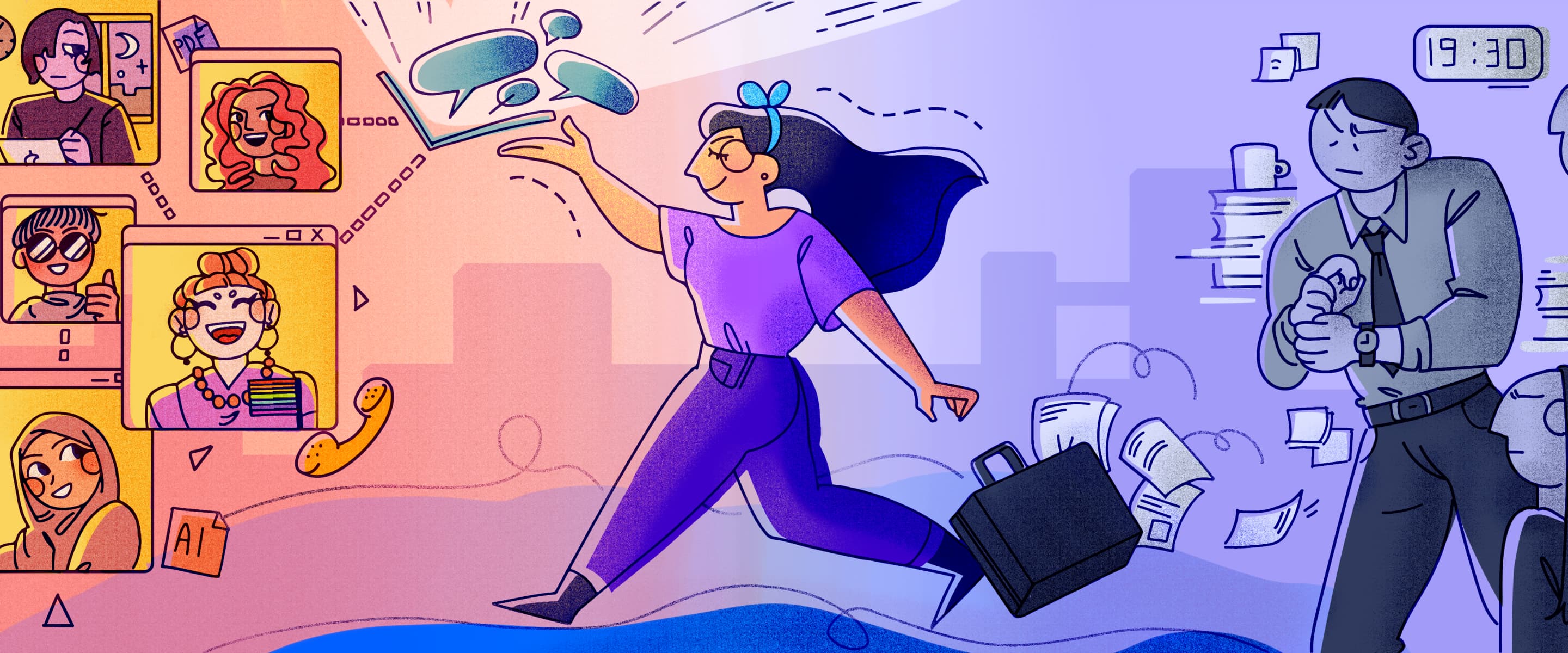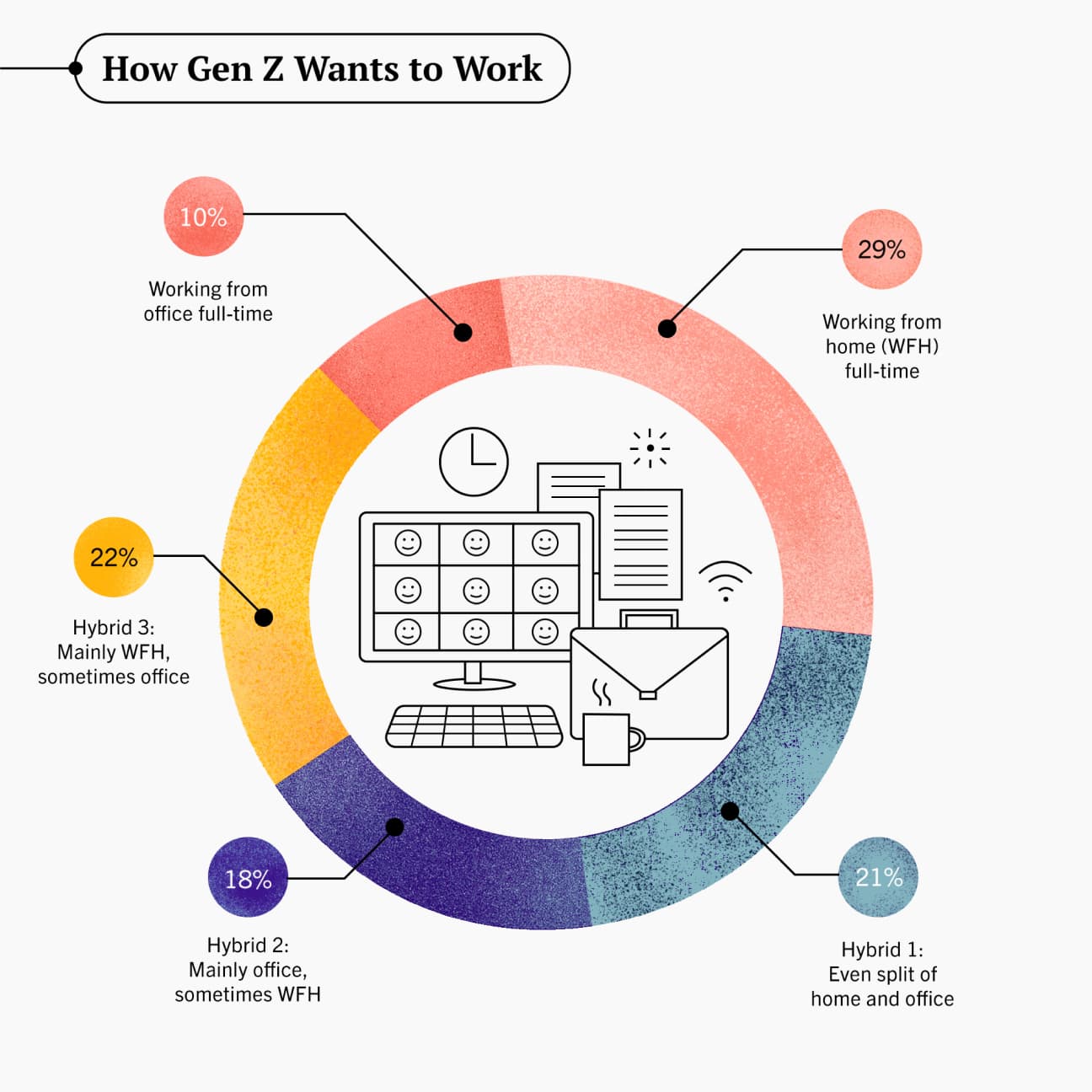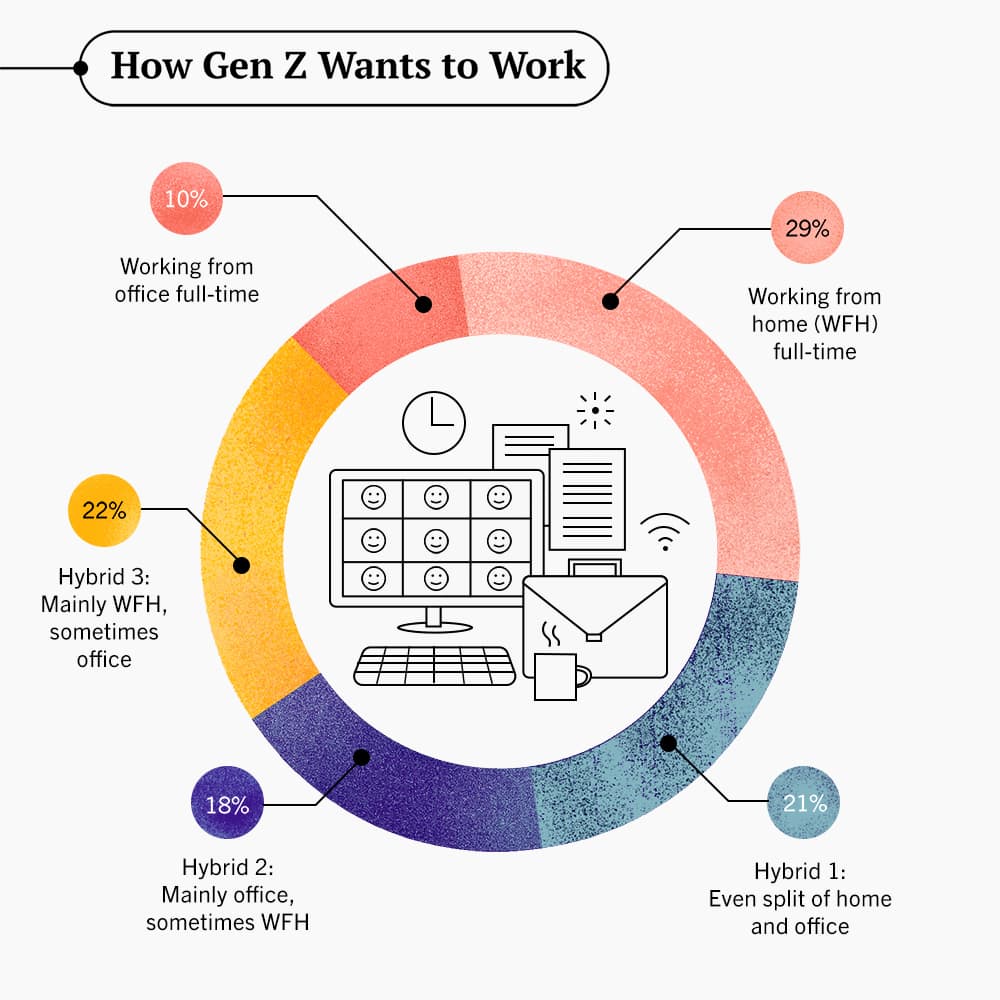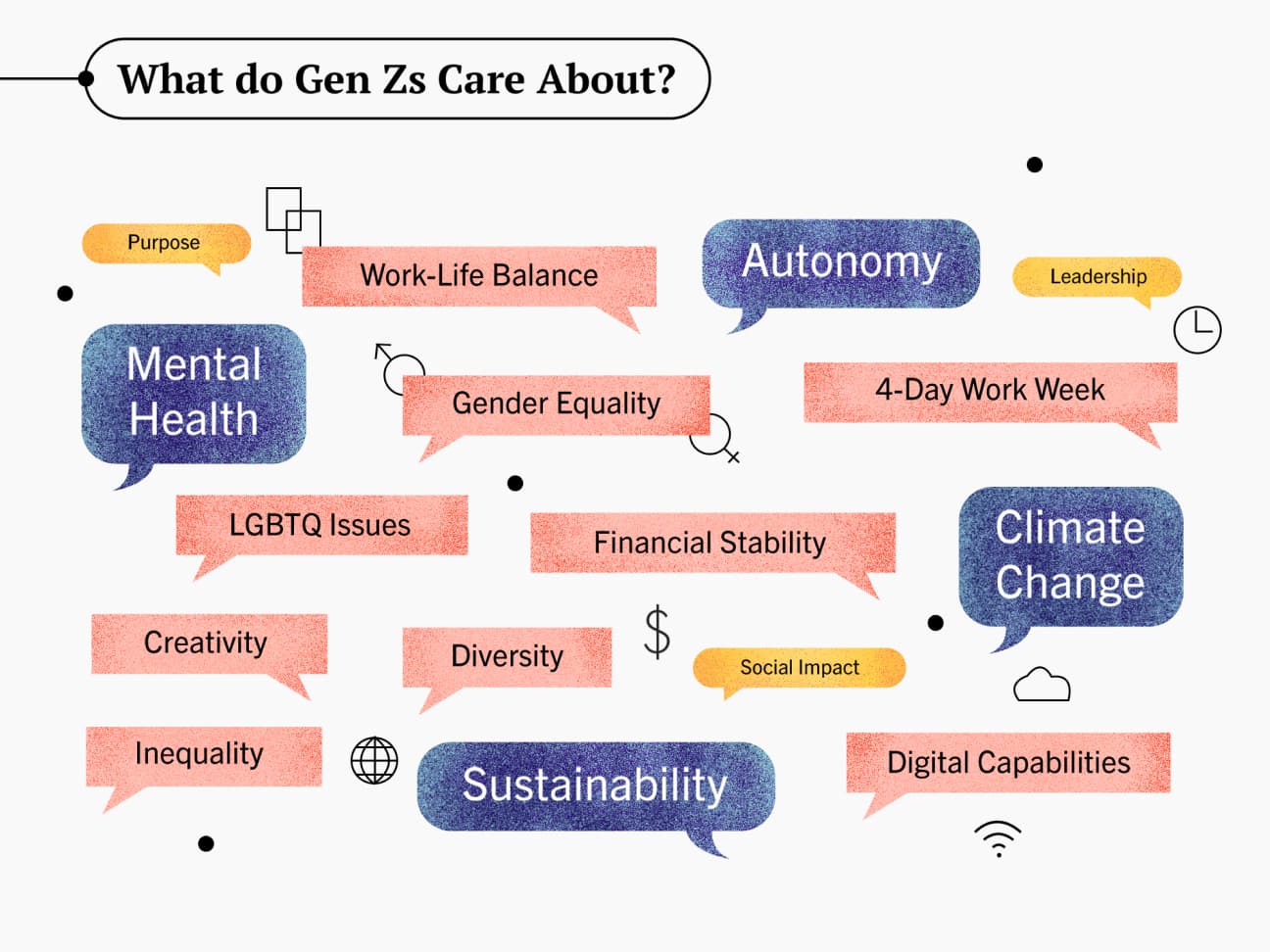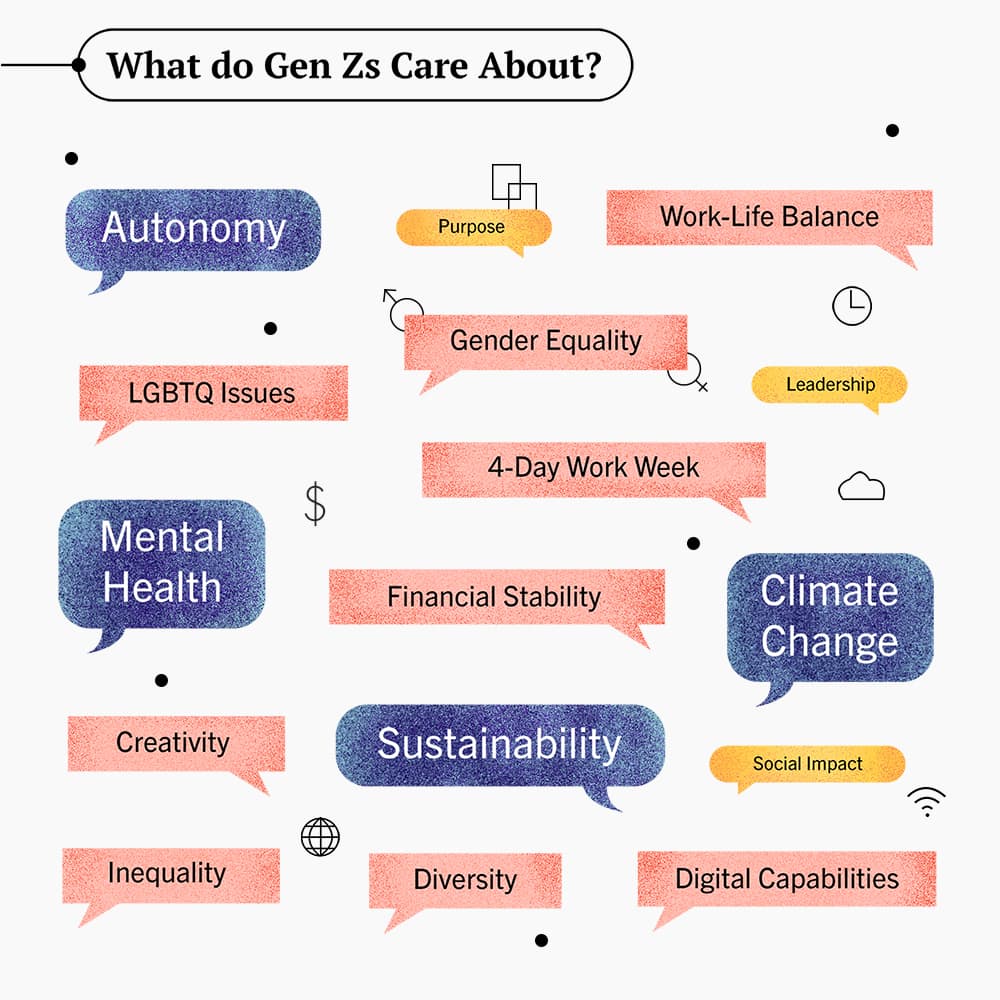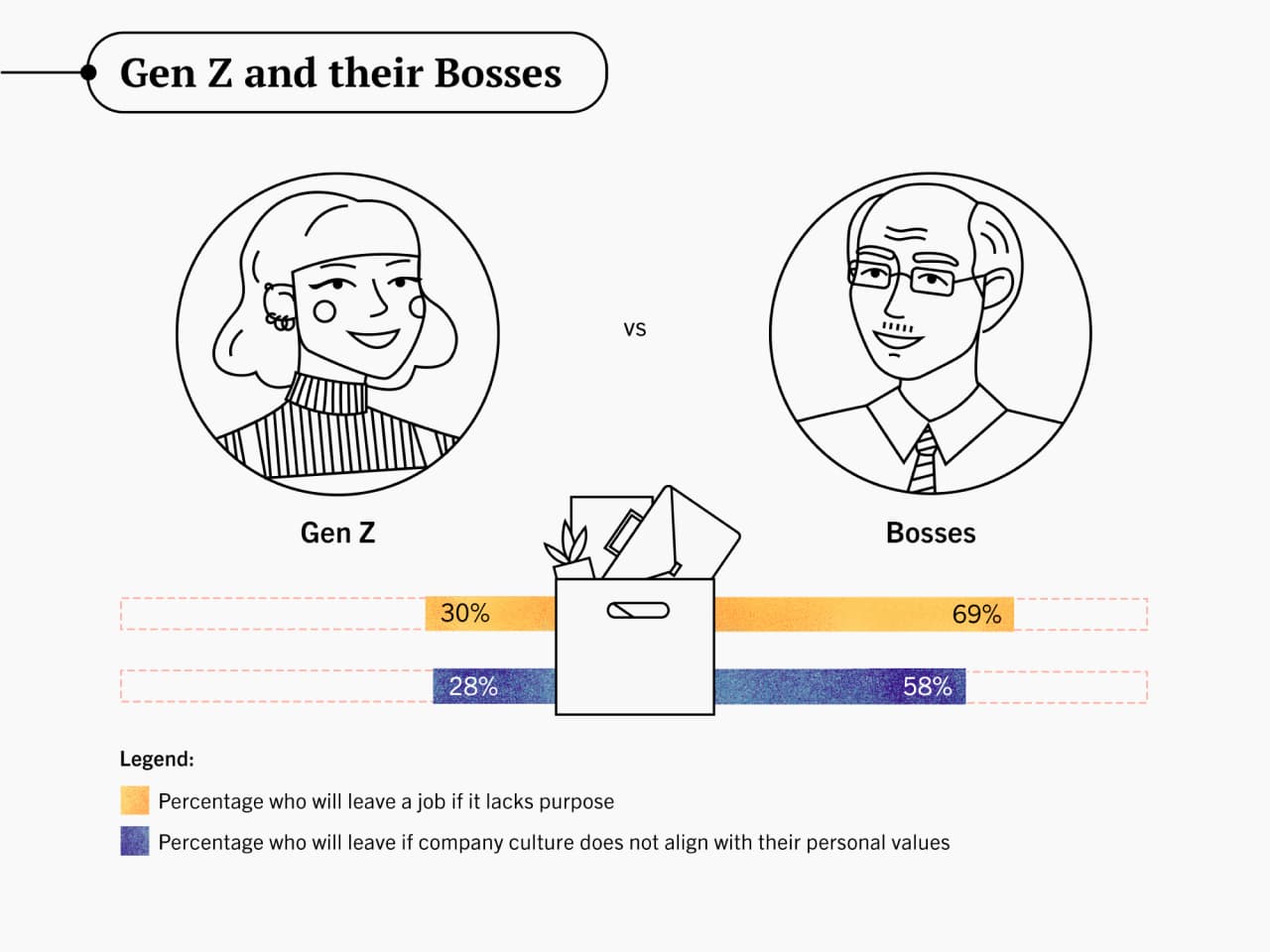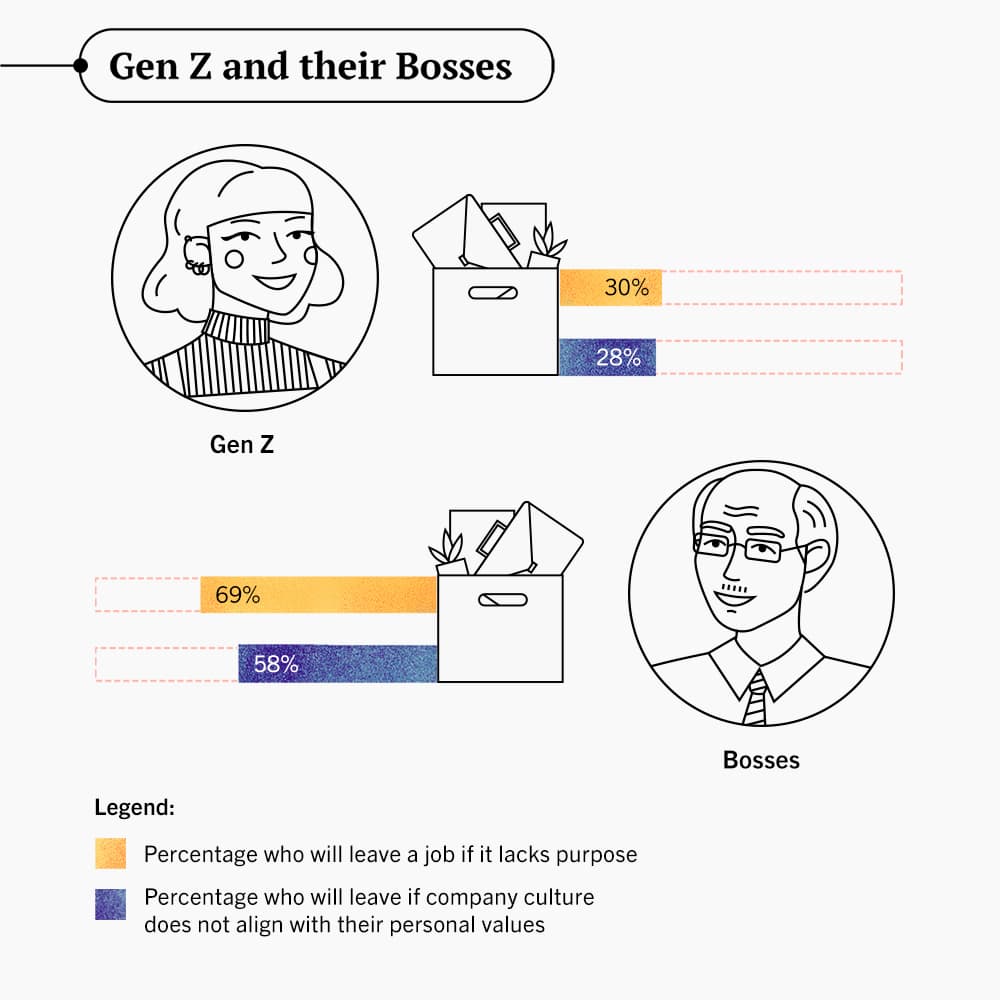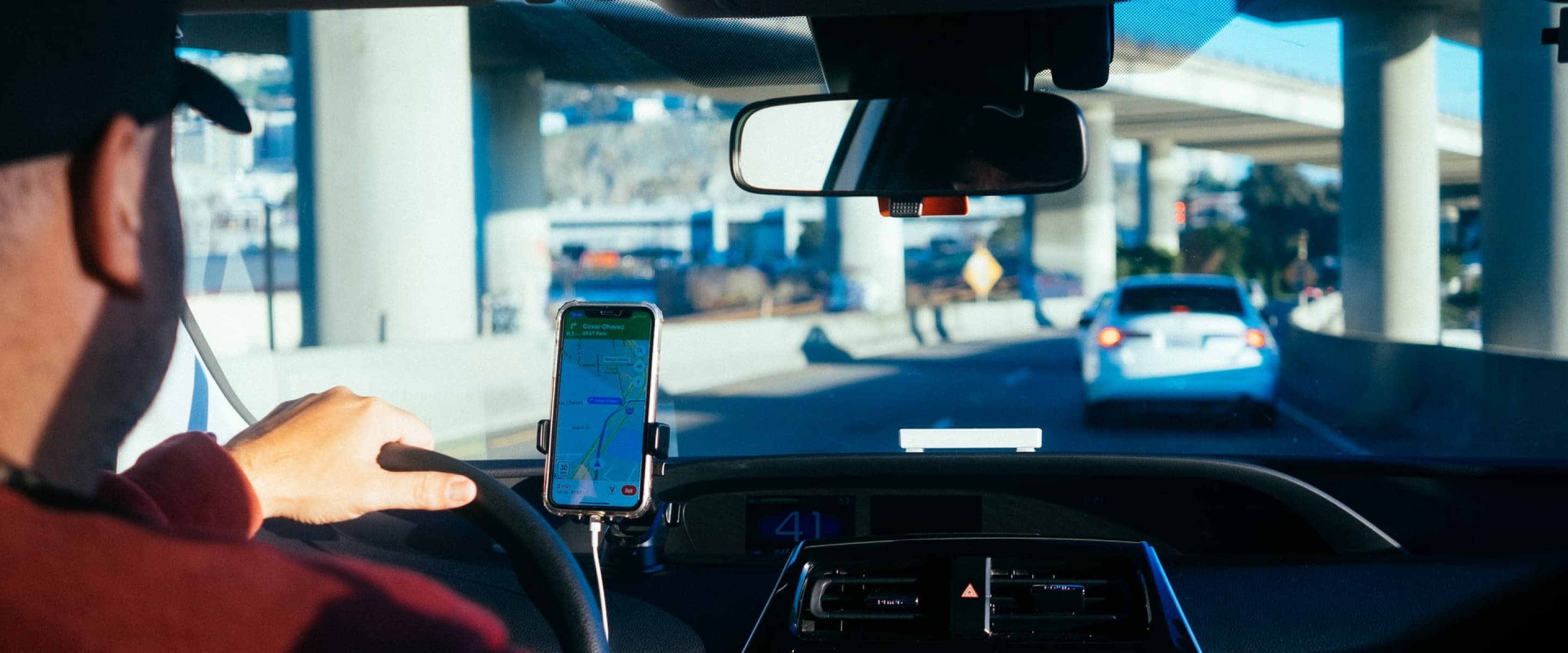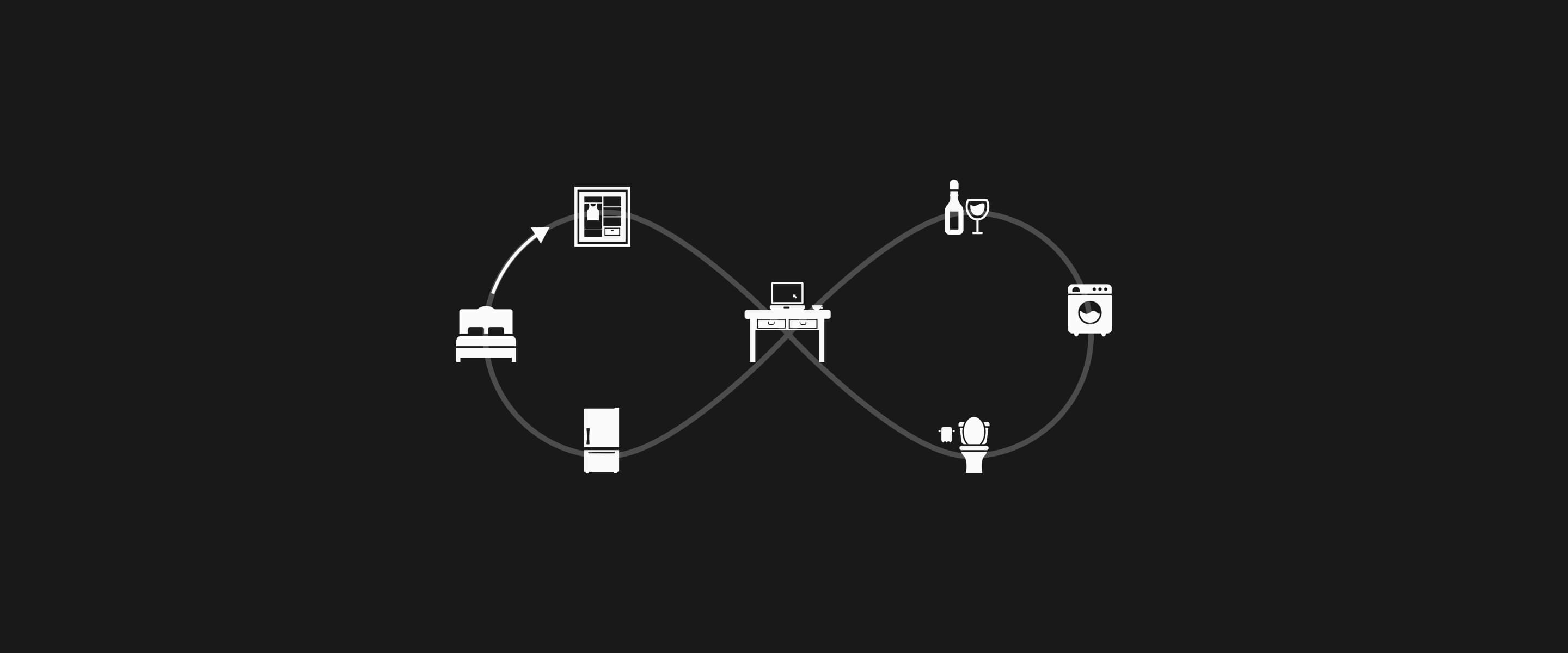The global economy is changing rapidly. Experts will explain that it is driven by artificial intelligence, or climate change, or the inequities created by capitalism.
However, there is one important factor most pundits overlook: people. Millennials work very differently from their baby-boomer parents, and Gen Z workers are a breed separate from their millennial predecessors. How these groups approach their 9-to-5 plays a massive role in shaping the future of work.
The oldest amongst the Gen Z have just embarked on their careers, so let us take a look at their hopes, worries and long-term aspirations.
Generation flex
For starters, the 9-to-5 might soon cease to exist. As far as Gen Z is concerned, the traditional office belongs in a museum and people should have the flexibility to work wherever and whenever they please.
According to Citrix’s survey of young workers, just 10 per cent want to be desk-bound full-time. An overwhelming majority prefer either to work from home forever, or some sort of hybrid system where their time is split between boardroom and bedroom.
The keyword here is independence. 83 per cent of those surveyed listed “autonomy” as priority, and 82 per cent wanted to set their own working hours.
Managers who insist on “face-time” might soon face a revolt from these digital nomads.
Activist employees
Social and environmental justice matter, say Gen Z workers who were surveyed by Deloitte and SurveyMonkey.
For instance, 60 per cent see structural racism as a problem afflicting society, with 38 per cent believing such racism to be prevalent in the workplace. Accordingly, 77 per cent of them said that a company’s commitment to diversity will influence their decision to stay at their workplace.
Social justice at work might help retain younger workers and keep them happy, but it is easier said than done.
Two-thirds also believe companies pay “lip service” to “diversity” for the sake of their image. Touché.
Just a job
In fact, most Gen Z workers seem less personally invested in businesses and brands as compared to the generations before them.
One survey found that only 30 per cent of Gen Z workers would leave a job that lacked “purpose”. If the company did not align with their personal values, most would stay, nonetheless. Only 28 per cent were strident enough to leave for such a reason.
Does this number not contradict their supposed zeal for social justice and change?
Not really, we believe. The weak economy means few young workers can afford to leave. Ultimately, financial stability matters more than abstract ideas like ‘purpose’ and ‘meaning’ — at least in the workplace.
Since they have so little faith in the corporate world’s social commitments, why bother with finding purpose in the work?
Stress and mental well-being
This shift in priorities is perhaps not altogether surprising when you consider their overall experience at work. Where mental health is concerned, Gen Z workers are anything but satisfied.
Compared to millennials, a larger number of zoomers report stress, anxiety and an inability to cope with the psychological difficulties of the modern workplace. One-third of them say they have taken time off due to stress and anxiety. Of the remaining two-thirds, an alarming 40 per cent confess feeling stressed “all the time”.
It seems that employers have a long way to go when it comes to making work conducive for workers. In 2020, 60 per cent were dissatisfied by the level of mental health support they were provided.
Changing futures
In short, the ideal corporate environment in the future ought to be flexible and socially responsible. They should respect their employees’ emotional needs whilst giving them the space and freedom to do their job, on their own terms.
Most companies are moving in that general direction, but perhaps not quickly enough. For one, there is still too much grandiose talk on mental wellness and not enough action.
Perhaps we need not worry. Gen Z will soon overtake millennials as the largest demographic in the workforce. If the work environment doesn’t change to accommodate them, they will surely strike out and make the change happen themselves — something we can all look forward to.
Sources: Citrix, Deloitte, Harvard Business Review, McKinsey, Monster, Pew Research Center, SurveyMonkey



